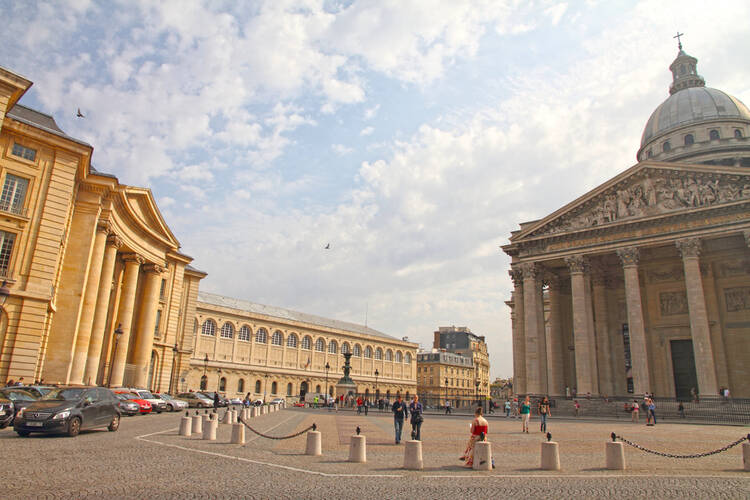“In Secularism We Trust: The Fate of Religion in the 21st Century”: this was the title of the presentation and discussion at Fordham Center on Religion and Culture last Tuesday. Molly Worthen, a historian of religion, described the advance of secularization in America; Harvey Cox and Ross Douthat gave commentary from a liberal Protestant and a conservative Catholic perspective. E. J. Dionne moderated the ensuing arguments with wit and dispatch. A lot of nuanced, complex ideas were discussed that can’t be summarized easily.
In reply to Worthen, Harvey Cox emphasized that while secularism is advancing in the developed world, Pentecostal Christianity spreads like wildfire in Africa, South America and China. From a more conservative Roman Catholic standpoint Ross Douthat reminded the audience that we never know what is coming in our cultural future. An individualistic secularism has had its ups and downs and a reaction back toward communal religion may be in the cards. If Pope Francis manages to revitalize the church without too much conflict Douthat thinks that Catholicism may increase its influence in the world. It should also be biologically noted, he added, that religious people marry and have more children than secular people. If some proportion of offspring stay in the fold, religious groups will increase in society.
All the speakers agreed that a critical question involved America’s growing number of “Nones,” who report no religious affiliation. What do they believe and feel? They do not seem to be avowed atheists. How much overlap is there among the Nones and the increasing number of persons who describe themselves as “spiritual but not religious?”
Harvey Cox said that many “spiritual” people are religiously Christian in the way the early church was before Constantine took it over and enforced creeds and institutional conformity with state power. What’s happening now in the spread of Pentecostalism can be seen as a positive return of mystic and experiential religion. Molly Worthen was not convinced; she thought it more likely that secularism was unstoppable, even globally, once material development took place. Affluence, technology and science reduces suffering and death and lessens the need for religious support. In addition she thought the Christian churches have lost their cultural moral authority after so many abuses and intolerant repressions of individuals.
Yet there are always unknowns in the future. The questions of Muslims and the influence of women are factors in the religious future. I noticed that the looming climate disaster also remained unmentioned. The story of secularism and religion is very much unfinished. How do we think it will end?








